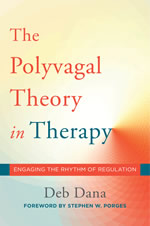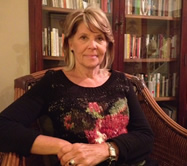Interested in being Editor-in-Chief of an international peer reviewed Journal?
The EABP and USABP are seeking applications for their new Editor-in-Chief (an EABP member) and their new Deputy Editor (USABP member). The role starts January 2019.
Editors will work with their new managing editor, Antigone Oreopoulou, thus forming the IBPJ editorial team. The team is responsible for:
identifying the journal's aims, scope and direction
maintaining the professionalism and quality of the Journal content
publishing the journal
They are seeking experienced clinicians with good writing skills (having published one's own book or articles) and a good sense of the English language (knowledge of APA style and formatting is also necessary), organizational skills and communications skills are also needed.
If you are interested, please contact Antigone Oreopoulou at [email protected]
How to Recollect and Reconnect: Family Tension and the Cure of Holidays
Elisa came to me a few days before a 10-day holiday with her 21-year-old son, Thomas. They had planned to explore Portugal’s local beaches, have time to relax and be together. But she felt uneasy, stressed about the trip. Her history was rather classic. She was divorced; had had a boy, an only child. As it often happens when parents separate, they share their feelings (verbally and non-verbally) with their children imposing their point of view on their children. And as happens with children in this situation, they learn quickly, if they don’t already know how, to play with their parents’ feelings and how to take advantage of the situation and turn things to their own benefit. Thomas was quite practiced at the art of manipulation. Furthering Elisa’s difficulties, her former husband had remarried and fathered two girls. Thomas demonstrated a clear loss of self-worth; he obviously was looking for an identity that he was not yet able to comprehend.
Heart Open Body Awake: Four Steps To Embodied Spirituality
Reviewed by Nancy Eichhorn
I recently received a copy of Susan’s newest book, Heart Open Body Awake: Four Steps To Embodied Spirituality, from Shambhala Publications,...
The Online Setting and Body Psychotherapy
During the pandemic, I considered the repercussions that existed and the modifications necessary to use my time most effectively with clients in the online psycho-therapeutic setting. Despite the impositions and limitations of our electronic settings, I considered how we most effectively, most efficiently, and most negentropically adapted to our unanticipated, new reality.
SPT Winter 2018 is now digital
We've just posted our Winter 2018 issue on issuu.com so our readers can access our articles digitally. And you can pay for a print copy as well.
Our Winter issue deals with addiction. Drugs, alcohol, sex, gambling, shopping, food, social media, digital games, movies, whatever the ‘substance’ the effect is the same—numb out, dissociate, flee from the perception of pain (be it physical, psychological, emotional, spiritual). The number of people who are considered addicts has reached pandemic proportions—no one place, no one race, no one culture is free of this infectious disease. But, is it a disease or is it a reflection of our inability to self and/or mutually regulate our affective state? Are these behaviors, labeled as addiction or addictive, are these monikers—addict, addicted— accurate? Or, do labels simply shadow deeper manifestations motivating people to reach for something to quell their emotional fluctuations, to smooth the ups and downs in their bodily being?
These questions and more are considered in our Winter issue. Our contributors share their thoughts on addiction, on behavioral patterns that become ‘stuck’, automated, reactionary in the face of overwhelm and affective arousal. Possible physiological causes are considered—think trauma and all that comes with that terminology—and potential interventions are pondered.
The Sounds Behind Our Voice
What do seasoned actors express that is more than the lines they say? What do the ‘raw/gut’ sounds behind our words actually mean? How aware are we of the underlying causes of our own and of others vocal tensions?
How might professionals intentionally access ‘sound’ to more effectively persuade clients? And baby talk. What do we know about this?
The bridge between early childhood sound and adult vocal tones is an area that requires better understanding if we are to realize fuller potential and depth in our communication. The sounds behind words often express unconscious aspects of ourselves and our memories. This is one reason they tend to remain unknown or unclear to us.
The Neuroscience of Pain:
The central nervous system plays a critical role in the association between psychological factors and pain. The neural circuits that are involved in these bi-directional relationships include several systems that influence peripheral processes relevant to pain perception. It is possible that transient psychosocial factors as well as long-term consequences of developmental trajectories adversely affect these neurobehavioral pathways. Exploring the neuroscience of the biobehavioral and developmental mechanisms of pain is the goal of the upcoming Special Issue of Psychosomatic Medicine.
Somatic Psychotherapy Today Volume 11, Number 1, 2021
This issue of SPT Magazine offers articles published online this past year for readers who do not follow us on Facebook and LinkedIn, and for those who want all of the articles in one PDF they can download and read at their convenience. I hope 2022 brings a return of contributors willing to share their experiences and clinical knowledge with our readers.
Our Annual Book Review Issue is Here
Maintaining our traditional summer focus, we are pleased to share reviews of books “hot off the press”, author reflections on their writing experience, and articles from our regular contributors. As a courtesy to our subscribers, we will email a special link to access the complete PDF. And, make sure we don't leave anyone out, we're also posting each review, reflection and article individually over the next several weeks.
Leading from the Heart
I grew up believing I was alive because other people needed me, because I played a significant role in their lives. And in truth, my choice to become a therapist was a choice to be at service for others.
But, does the choice to open, to touch and be touched, to share our heart and our time with others have to come at the expense of our lives?














